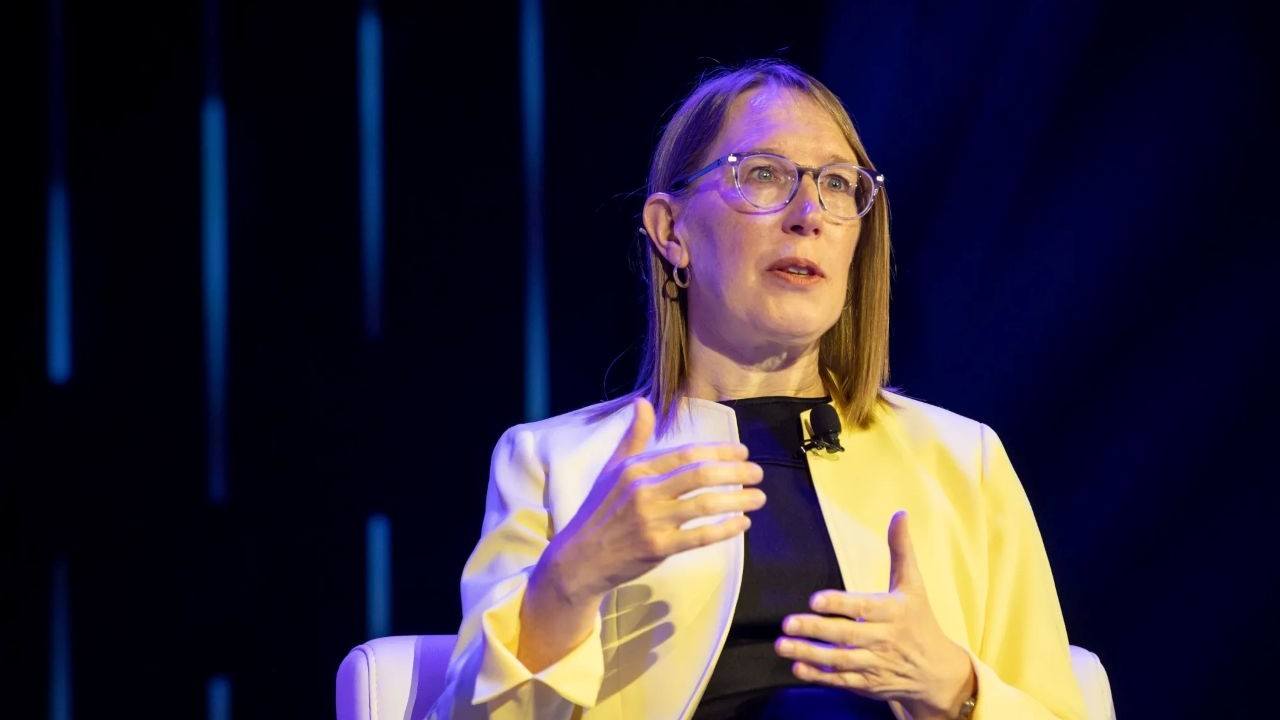The SEC’s Crypto Task Force: Navigating the New Frontier of Digital Asset Regulation
Introduction: A Regulatory Wake-Up Call
The cryptocurrency landscape, once a niche corner of the financial world, has exploded into a global phenomenon. With this growth comes increased scrutiny, and the U.S. Securities and Exchange Commission (SEC) is stepping up to the plate with its Crypto Task Force. This initiative marks a pivotal moment in the evolution of digital asset regulation, promising to reshape the industry’s future. As the SEC grapples with the complexities of crypto, stakeholders must understand the implications of this regulatory shift.
The Genesis of the Crypto Task Force: A Necessary Evolution
The SEC’s Crypto Task Force emerged from the necessity to address the rapid evolution of the cryptocurrency market. The task force’s creation reflects the SEC’s recognition that traditional regulatory frameworks are ill-equipped to handle the unique challenges posed by digital assets. By assembling a team with expertise in various domains, the SEC aims to create a comprehensive regulatory approach that balances innovation with investor protection.
The task force’s interdisciplinary nature is crucial. It draws talent from across the SEC’s divisions, ensuring that all aspects of crypto regulation—from market integrity to investor protection—are thoroughly examined. This holistic approach is essential in an industry where the lines between securities, commodities, and currencies are often blurred.
Hester Peirce: The Bridge Between Regulation and Innovation
Commissioner Hester Peirce, affectionately known as “Crypto Mom,” has become a central figure in the SEC’s crypto initiatives. Her advocacy for sensible regulation and innovation has positioned her as a key liaison between the SEC and the crypto community. Peirce’s leadership signals a potential shift towards a more balanced regulatory approach, one that encourages responsible innovation while safeguarding investors.
Peirce’s nationwide tour, involving roundtables with small crypto startups, underscores the SEC’s commitment to understanding the unique challenges faced by early-stage companies. This outreach effort is not merely symbolic; it represents a genuine effort to incorporate diverse perspectives into the regulatory process. By engaging directly with startups, the SEC can develop regulations that are both effective and feasible for businesses to implement.
Roundtables Across America: A Collaborative Approach
The SEC’s nationwide roundtables are a testament to its commitment to collaborative regulation. These events provide a platform for stakeholders to voice their concerns, share insights, and contribute to the regulatory process. The roundtables focus on specific topics, such as crypto trading and custody, ensuring that discussions are practical and actionable.
The transparency surrounding these roundtables is commendable. The SEC announces the agenda and panelists in advance, encouraging participation from a wide range of stakeholders. This open approach fosters trust and ensures that the regulatory framework is shaped by the collective wisdom of the crypto community.
Leveraging Private Sector Expertise: EY’s Input
The SEC’s collaboration with private sector experts, such as Ernst & Young LLP (EY US), highlights the importance of leveraging diverse expertise in developing effective crypto regulations. EY’s submission of a letter to the SEC in response to its request for input demonstrates the value of industry insights in shaping regulatory policy.
This collaboration is a positive step towards creating a regulatory framework that is both robust and practical. By incorporating the perspectives of leading accounting firms, the SEC can ensure that its regulations are grounded in real-world experience and best practices.
Project Crypto: Modernizing Securities Regulations
The SEC’s “Project Crypto” initiative represents a forward-looking approach to crypto regulation. By modernizing securities regulations to accommodate crypto-based trading, the SEC aims to bring U.S. financial markets “on-chain.” This initiative has the potential to unlock new opportunities for innovation and growth, positioning the U.S. as a leader in the global crypto market.
Project Crypto is not just about adapting existing regulations; it’s about reimagining the future of finance. By embracing crypto, the SEC can foster a regulatory environment that encourages innovation while maintaining market integrity.
The AI Factor: A New Task Force for Emerging Technologies
Simultaneous to its crypto initiatives, the SEC is also building a new Task Force to tackle Artificial Intelligence (AI) questions. While its initial focus is on optimizing the SEC itself, the mission could expand to address the broader implications of AI in financial markets, including its potential impact on crypto.
The convergence of crypto and AI presents both opportunities and challenges. AI can enhance the efficiency and security of crypto markets, but it also raises concerns about market manipulation and data privacy. The SEC’s proactive approach to AI regulation is crucial in navigating these complexities.
Challenges and Opportunities: The Road Ahead
The SEC’s increased focus on crypto regulation presents a mix of challenges and opportunities for the industry.
Challenges:
Opportunities:
Conclusion: A Cautious Path Forward
The SEC’s intensified efforts to regulate crypto, spearheaded by the Crypto Task Force and initiatives like Project Crypto, mark a significant step towards a more structured and secure digital asset landscape. The path forward is fraught with complexities and trade-offs, but the ultimate goal remains clear: to foster a thriving crypto ecosystem that is both innovative and secure.
The SEC’s journey into the world of crypto regulation is not just about rules and enforcement; it’s about shaping the future of finance. Whether the SEC will be able to strike the right balance between fostering innovation and protecting investors remains to be seen. But one thing is certain: the world of crypto will never be the same. As the industry evolves, the SEC’s role will be pivotal in determining the trajectory of digital assets, ensuring that they remain a force for positive change in the financial world.





